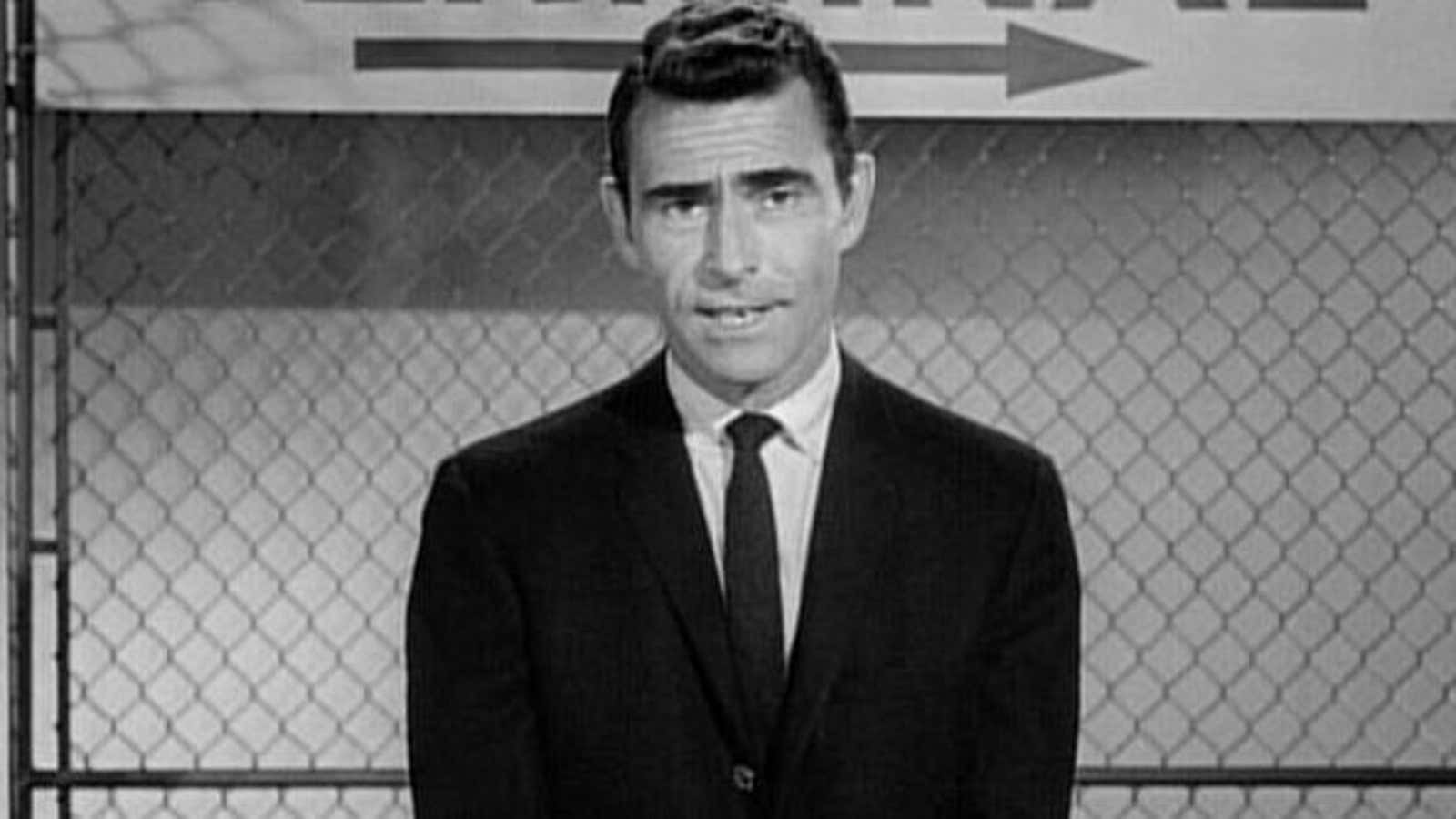Third time’s a charm? CBS chief Leslie Moonves announced on his company’s earnings call last week that the network is developing a reboot of its iconic 1960s sci-fi anthology series, The Twilight Zone. CBS previously revived the series in the 1980s and early 2000s, to varying degrees of success.
Created in 1959 by writer Rod Serling, the original Twilight Zone lasted for five seasons (156 episodes) and won two Emmys on its way to becoming arguably the greatest science-fiction television show ever made. Each episode, introduced with a Serling monologue, told a self-contained suspense story, usually with a clever twist at the end. Most stories served as cutting allegories for social or political issues at the time, namely racism, McCarthyism, and the ongoing Vietnam War. (Serling, a US army veteran, was also a noted antiwar activist.) Last year, Rolling Stone ranked The Twilight Zone as the seventh best TV show of all time.
The two revivals didn’t fare quite as well. Some time after the original aired, Serling sold the rights to his show back to CBS, and in 1985 the network produced a moderately successful three-season reboot. The network tried another reboot in 2002, airing on the now-defunct UPN. That iteration received a tepid response from critics and fans, and petered out after just one season.
Apparently, it’s now time for another attempt. Get Out director Jordan Peele—seemingly involved in every new project in Hollywood—will reportedly produce the series. Marco Ramirez, executive producer of Netflix’s Daredevil, will serve as showrunner, though the show is still in the very early stages of development.
Moonves added that the reboot will be part of the network’s standalone streaming platform, CBS All Access, which already hosts shows like The Good Fight and Star Trek: Discovery. A well-known entity, The Twilight Zone is an excellent property to capitalize on as CBS seeks to compete with the likes of Netflix, HBO, and Hulu in the subscription streaming world.
But it’s also a tricky franchise to navigate, as Serling’s original was inextricably tied to the time in which it was made. As others have pointed out, it’s unclear exactly what The Twilight Zone would look like in 2017. Perhaps the only way to honor Serling’s vision is to make a version of the show that is unique to today, touching on modern issues—except we already have Black Mirror for that. An anthology series was a pretty novel concept in 1959, but today, it’s the hottest trend in TV.
